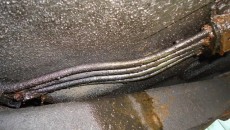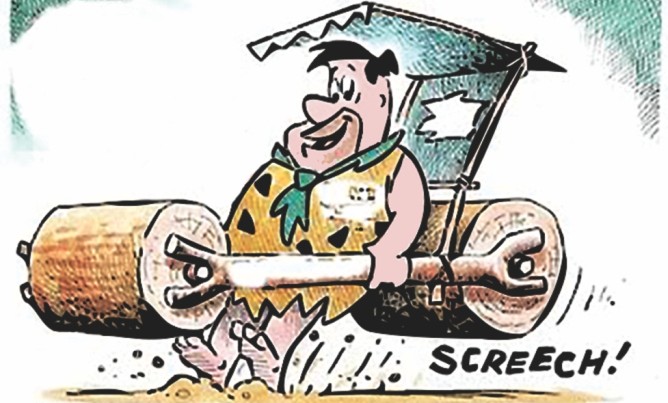Brake Failure: Fine Line Between Life And Fatal Accidents
Brake failure is a common problem with automobiles. Failure of Brakes can be fatal in any situation. Every year, several precious lives are lost as a victim to brakes failure but no one identifies the real cause of brake failure. Car owners and drivers are not aware of the causes that leads to failing brakes. In a survey conducted last year, NHA (National Highway Authority) identified failure of brakes as one of the top three reasons of deadly accidents on Motorway. Let’s talk about some common causes of brakes failure.
One common myth is that Anti-lock braking system does not lead to failure of brakes. But the fact is that all braking systems can fail in different situations. But yes! the probability differs.
Brake failure can have multiple causes. Some of them are:
Overheating
Overheating of brakes is termed as Brake fade or brake fluid boil condition. These conditions often occur as a result of hilly area driving, aggressive driving, racing, vigorous braking on short intervals or riding the brakes on long haul routes. As heat emerges in the brake linings, it tries to acquire more and more pressure to maintain the same level of friction and braking strength when brakes are applied. You might feel the brake pedal firm but on applying brakes, you will notice the reduced stopping power. Heated brakes may also cause the fluid inside the brake fluid container to boil. This creates a steam vacuum that reduces the brake pedals’ travel to a great extent and such a situation does not allow you to apply brakes anymore due to reduced pedal travel. Overheating of brakes is more common in Automatic gear transmission as compared to manual gear transmission cars. The best recommended solution for this problem is to stop your car on a road side and wait for some time allowing the brakes to cool down.
Leaks
One of the most common causes of brake failure is low fluid pressure or loss of fluid pressure in your brake system due to leakages. The functionality of brakes depends on hydraulic pressure. In case a leak occurs in a brake line, brake hose, brake cylinder or caliper, the loss of fluid pressure in the lines does not let brakes to be applied.
In a situation when a serious leak occurs, the red brake warning check light should illuminate when brakes are applied. This indicates that there was some loss of pressure in some component of your braking system and that it is not safe to drive your car in the present condition. In such a situation, you are supposed to immediately check the fluid level in the reservoir. If the level of fluid in reservoir is extremely low or the reservoir is drying up, it shows that your braking system has gone through a serious brake fluid leak. The entire brake system should be inspected for leakages.
A broken or cracked rubber hose, or a rusted steel brake line can result in a sudden fluid loss. Old vehicles exposed to road salt or immense moisture have rusty brake lines in them. If the protective coating on the steel brake lines is slight or of low quality, salt can prove to be extremely corrosive. Once rust spreads in the brake line it results in a brake line failure.
Faulty ABS Modulator
One possible cause of brake failure can be a defective ABS modulator that is resulting in loss of brake pressure internally and is not asserting appropriate pressure to the brakes on applying brakes. Rust in the brake system can enter the modulator or some dirt can prevent the accumulator valve in the ABS from sealing, letting the modular to leak within.
Other reasons
Many more factors can contribute in loss of brake pressure of failure of brakes, e.g:
- Severely worn brake linings can result in a long pedal travel while no or less effectiveness in brakes. Rarely, air in your brake lines can also be one of the cause, which would require bleeding the brake lines to get rid of the air.
- Another possibility can be a worn out master brake cylinder. Worn or damaged piston seals inside the master cylinder does not let pressure to be applied on pressing the brake pedal.
- If the power brake booster is defective and is not functioning well, it requires the brake pedal to be pressed with much harder force to stop your car. It rarely causes your brakes to fail.
So make sure you keep an eye on your car’s brake system because you and your passenger’s safety depends on it.



Brake fade and brake fluid boil are completely independent phenomenon.
Brake fade occurs due to overheating of brake lining.This means friction material on the brake pad or brake shoe.
Brake fluid can boil whether the brake lining material faded (due to overheat) or not. And brake fade can occur whether the brake fluid boiled or not.
When brake fluid boils, the pedal sags every time because it is compressing vapour which is compressible. Where brake fluid is incompressible in liquid form. Whereas the article suggests that the brake pedal will actually stiffen up and will provide reduced pedal travel. Why?
Anyhow heated brakes do not cause the brake fluid inside the container to boil. It is the coolest part of the brake fluid. Heated brakes cause that fluid to boil which is just inside the calipers/slave cylinder because it is nearest to the source of heat.
I wish to add one preventive maintenance point. Brake fluid should be changed every 2 years or 24,000 kms. I have been doing so on my 1988 Corolla Car, which I bought in 1996. Since then I have only changed the wheel cylinder seals once in all this time. Important Note: Always use good quality brake fluid. Never mix two brands of brake fluids.